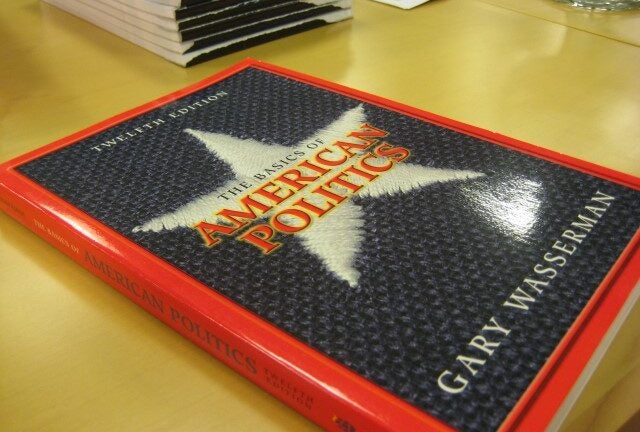American Studies, Dialogue Series, Regional Studies
Gary Wasserman on the role of Lobbying Groups in American Foreign Policy

On February 11, 2008, students and guests of CIRS were treated to a lecture by Gary Wasserman, Professor of Government at the Georgetown University School of Foreign Service in Qatar. Wasserman’s lecture, part of the CIRS Monthly Dialogue Series, discussed the question “Democracy and American Foreign Policy: Do Interest Groups Help or Hinder?”
Wasserman argued that allowing interest groups to lobby helps open up the highly centralized U.S. foreign policy process, which is dominated by the executive branch. Wasserman called this executive hegemony “presidentialism.” Presidentialism can be illustrated by many experiences under the Bush administration, Wasserman said. He cited examples of presidential language modeled on rhetoric of the armed forces, and of the increase in classified documents under the Bush administration.
Wasserman claimed that the use of classified documents limits the involvement of outsiders in the political process, and reduces political debate and executive accountability. Moreover, these classified documents are used selectively as a means to an end, as in the case of the buildup of argumentation for the Iraq War, Wasserman said. Serving as another example of presidentialism are governmental sanctions against dissident voices, such as the case of two American Israel Public Affairs Committee lobbyists who have recently been prosecuted for having obtained classified information.
According to Wasserman, the post-9/11 climate has added strength to the tendency of presidentialism; however, over the past few years and with new presidential elections coming up, this trend is beginning to be undermined by others, like globalization. Through globalization, new and different influence groups have risen, and this broadening of the political sphere has made American foreign policy slightly more pragmatic.
Wasserman then anticipated an expected audience question, stemming from the widespread negative image of interest groups and lobbyists: Is greater public involvement in foreign policy desirable? Here, Wasserman referred to Alexis De Tocqueville, who, in the mid-nineteenth century, pointed to the uneasy relationship in the United States between foreign policy and democracy.
Traditionally, these two entities are seen as antagonistic towards each other. Wasserman commented, however, that foreign policy often results from bureaucratic compromises, and that foreign policy is portrayed as more coherent than it actually is. Discussing the people factor, he referred to the work of Benjamin Page, who portrays the public as just as coherent, and stresses that it should not be excluded from the political decision-making process. Page then provides suggestions for the problem at the core of this matter, i.e., how to make democracy work with foreign policy.
Currently in U.S. society, the problem of the “people factor” has led to increasing prominence of experts in all fields. Since in foreign policy, lobbyists are the experts, lobbyists can in fact open up the foreign policy process, and lessen presidentialism, Wasserman claimed.
Wasserman argued against the traditional negative stereotype that surround lobbyists. Adding nuance to their traditional image, he alerted his audience to the potentialities of lobbyists as contributors to foreign policy-making in the democratic state, rather than selfish takers in that process.
Summary prepared by Katrien Vanpee. Katrien is a PhD-candidate at Georgetown University, and works at the Embassy of Belgium in Doha.